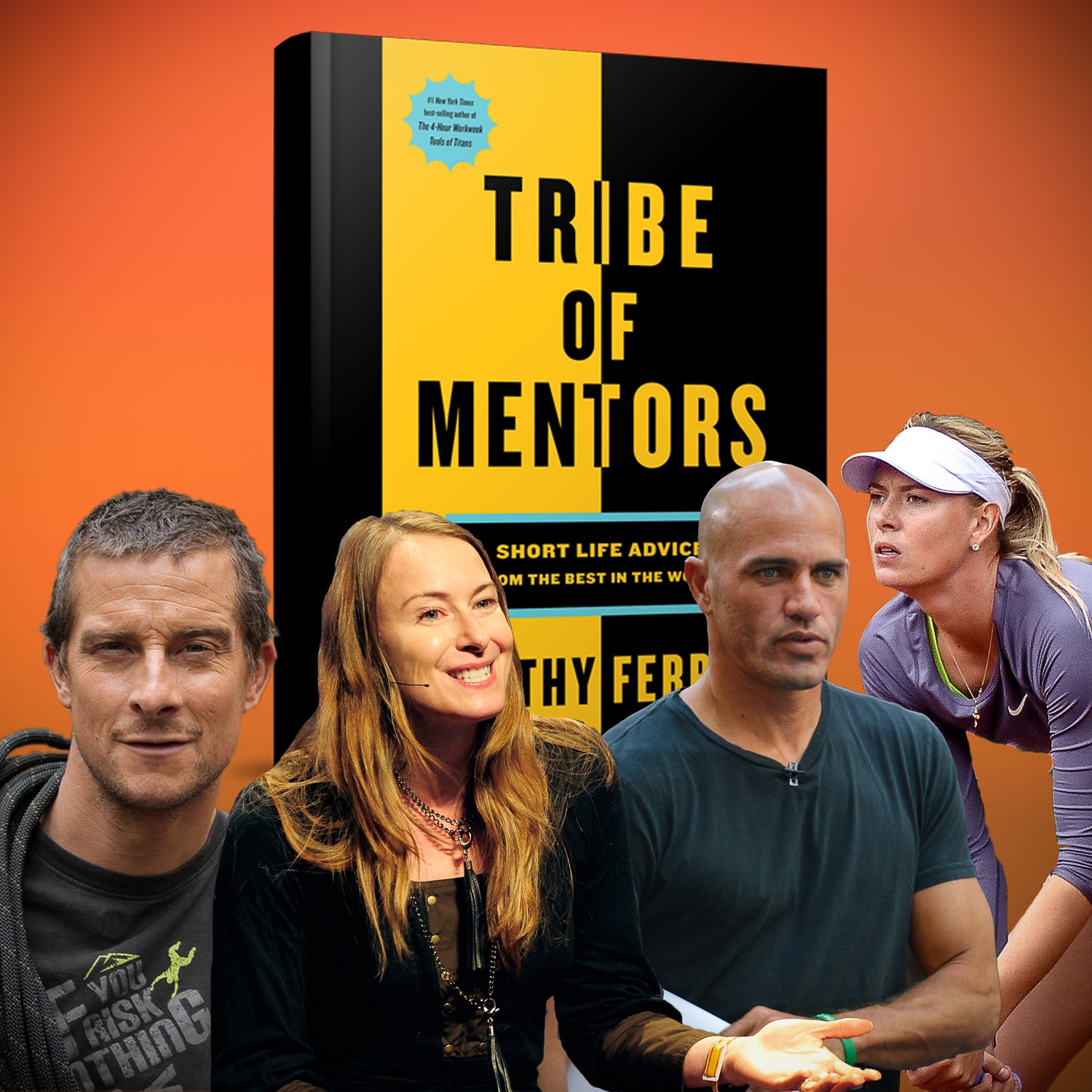According to , 2017 has been an “unusual” year for him. It got off to a slow start, then a lot of stuff happened quickly. Big stuff. He turned 40, several friends died, and he gave a explaining how he almost committed suicide when he was a senior in college. As Ferriss describes it in the introduction to his latest book, , this all led up to a very anxious morning of journaling, when he was overwhelmed with big life questions.
Then he asked himself a question that he says allows him to reframe our challenges: “What would this look like if it were easy?”
That led him to an idea: “What if I assembled a tribe of mentors to help me?”
His answer is a book of advice from a varied cast of 134 successful people—Olympic heroes, award-winning authors, billionaire entrepreneurs, acclaimed chefs, even a powerlifting poet. Ferriss, who has written three New York Times number one bestsellers and spent the past several years fine-tuning his interviewing approach as host of his insanely popular podcast, (often number one among all podcasts on iTunes), emailed an identical set of 11 clear and very specific questions to an expansive list of his “dream interviewees.” Tribe of Mentors is his 624-page curation of the best answers he got back.
Here, we present a small selection of our favorite responses. They give just a hint of the surprising and powerful lessons offered by the tribe Ferriss assembled.
What is an unusual habit or an absurd thing that you love?
For every major event in my life—everything from races to job changes to breakups—I assign a song. Most of these come organically: what I was listening to at the time, lyrics that spoke to me at a moment in my life, or a song I sang on repeat during a race (a common habit of mine). I keep these songs in a playlist, ordered chronologically. I can go back through and listen to that playlist and relive major experiences, both highs and lows, in my life. It has a profound impact on me and my ability to recall and relive memories and major milestones. Examples:
- World’s Toughest Mudder 2012: Macklemore, “Thrift Shop” (rapped to myself to make sure I was lucid and coherent in the middle of the night)
- Studying for and taking the bar exam: Augustana, “Sunday Best”
Oh, and I eat a Pop-Tart before every race. Most folks consider that one strange.
—, three-time winner of World’s Toughest Mudder
What is the book (or books) you’ve given most as a gift, and why? Or what are one to three books that have greatly influenced your life?
by Scott Alexander. I read this at age 13, and it basically told me that life is tough and like a jungle, and that life rewards the rhinos who charge hard at their goals and never give up. And above all, not to follow the cows of life who drift aimlessly and suck purpose and joy out of the journey. I give it often to people I think would love or need it.
—, outdoor survival expert and adventurer
When you feel overwhelmed or unfocused, what do you do?
Deep breathing when my arousal (internal activation) level has kicked into high gear.
Music and movement (walking outside) when my attention span is fatigued.
Turning off my email when I get overwhelmed with “keeping up” versus producing meaningful work.
—Michael Gervais, high-performance psychologist for Olympians and the Super Bowl–winning Seattle Seahawks
How has a failure, or apparent failure, set you up for later success? Do you have a “favorite failure” of yours?
In my profession, losses are often seen as failures. Not being the person who wins the last point, walking off the court first. All those visible things. But internally, losing sets you up for winning. Losing makes you think in ways victories can’t. You begin asking questions instead of feeling like you have the answers. Questions open up the doors to so many possibilities. If a loss sets me up for those tough questions I might have to ask, then I will get the answers that will ultimately turn those losses into victories.
—, winner of five Grand Slam tennis titles
What is one of the best or most worthwhile investments you’ve ever made?
Investing in friends is important. My group of about 50 friends all have a house we grew up in, and we decided to pool our money and help make over the house, which needed some love. Not everyone had the abundance to help out, and getting something like that done can be like herding cats. One friend and I shouldered the bulk of the funds to make it happen, because it was ultimately our idea. I found that the more freely I was willing and able to share, the faster it was made back through other areas of work. I definitely connected the joy and rewards I got from freeing myself up to help in that way with the good fortunes that came my way in other avenues shortly after.
—Kelly Slater, 11-time world champion surfer
What is an unusual habit or an absurd thing that you love?
Eating raw Top Ramen when I’ve had an upset stomach.
—, winner of 12 Olympic medals in swimming
If you could have a gigantic billboard anywhere with anything on it, what would it say and why?
“Discipline equals freedom.” Everyone wants freedom. We want to be physically free and mentally free. We want to be financially free, and we want more free time. But where does that freedom come from? How do we get it? The answer is the opposite of freedom. The answer is discipline. You want more free time? Follow a more disciplined time-management system. You want financial freedom? Implement long-term financial discipline in your life. Do you want to be physically free to move how you want, and to be free from many health issues caused by poor lifestyle choices? Then you have to have the discipline to eat healthy food and consistently work out. We all want freedom. Discipline is the only way to get it.
—, retired Navy SEAL commander, recipient of the the Silver Star and Bronze Star, author
What are bad recommendations you hear in your profession or area of expertise?
Talk therapy. Talking and thinking about your fear is great—who doesn’t like to talk about themselves for an hour? But it will keep you in the loop of your thinking mind, often for decades. Emotional problems need to be dealt with emotionally, not intellectually.
—, former elite big-mountain freeskier, master facilitator, author of


